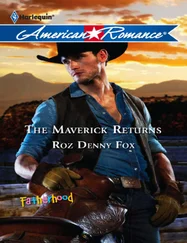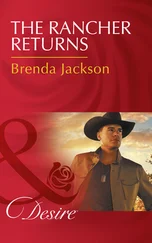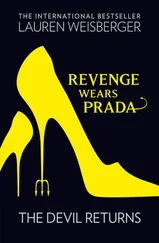“Business,” Michael said. Code, in their marriage, for this is not up for discussion.
“You’re right,” she said. “Of course.”
They rode home with cowboy songs on the radio.
Kay’s parents had parked in the driveway. Across the street, in front of the construction site that was supposed to be Michael’s sister Connie’s house, was a gray Plymouth. Some kind of cop-both because of the kind of car it was and because if it had been anyone but a cop, Al Neri’s crew would have already taken care of it.
From inside his house came the sound, the noise, of some keening opera, Michael couldn’t have said which one. Unlike the old Moustache Petes, Michael had never felt the need to affect an interest in opera. The music in the house was all Kay’s.
Kay winced and then rolled her eyes. “It’s Dad,” she said.
Her chilly relationship with her parents baffled Michael. They’d been in her corner for everything she’d wanted to do. Federal agents had once come into the same study where her father wrote his sermons to call Michael a gangster and a murderer, yet when she decided to marry him, they hadn’t hesitated to give their blessing. He was about to say something-tilting, as married people do, at the windmills of the immutable-when it occurred to him: the record player they’d brought with them from New York couldn’t possibly have been this loud. The sound was coming from the hi-fi in Michael’s den.
“He’s in my den,” Michael said.
“He’s losing his hearing, among other things,” Kay said. “Be nice.”
“He’s in my den,” Michael repeated.
She straightened her skirt and pointed to the backyard, where her mother was pushing Mary on the swing set. Michael nodded and went inside.
He climbed the stairs and crossed through his bedroom. The den was a nightmare of orange and brown, with molded plastic chairs and pole lamps with bulbs spraying inefficient light. Two redheaded children he’d never seen before were playing on the carpet with Tonka dump trucks. Thornton Adams sat behind Michael’s blond Danish modern desk. Anthony sat on his lap. Each had his eyes closed and his head back like some beatific stained-glass Jesus. Michael crossed the room and flicked the knob on the wall-mounted reel-to-reel tape deck.
Anthony’s startled look was so much like Kay’s had been a few minutes before that Michael’s heart hurt. The kids on the carpet stood and ran away.
“ Thornton,” Michael said.
“I took the liberty of-”
“Forget it,” he said. “It’s fine.”
“Are we in lots and lots of trouble?” Anthony said.
The boy’s upper lip trembled, and his eyes were wide. Michael had spanked the boy maybe three times ever. Anyone who thinks he can explain everything human beings do can wise up simply by having a kid or two. “No, sport,” Michael said. “You’re not in trouble.” He picked Anthony up and gave him a hug. “You like that? That music?”
“I told Grandpa that we weren’t supposed-”
“It’s all right,” Michael said. “What was it you were listening to?”
“Tell him, Tony,” Thornton said, putting his thick black-rimmed glasses back on.
“It’s Puccini.”
“He’s an Italian,” Thornton said. “Or was one.” He chuckled. “Quite dead, of course.”
“I’m aware of that,” Michael said.
“Say again?”
Michael raised his voice. “Puccini’s dead. You eat? Want me to make you something?”
“Agnes has a casserole going,” Thornton said. “It involves beans.”
Michael smelled nothing. What could be baking that smelled like nothing?
“Puccini’s dead?” Anthony said, ashen.
Michael tousled his son’s hair. “He had a good life, Puccini,” Michael said, though he didn’t know a thing about Puccini’s life. He could feel his son relax. “Who are the other kids?”
“Your neighbors,” Thornton said. “Their backyard and yours touch. They seemed like they were already friends with Tony and Mary. C’mon, Tony. We should go. Sorry if I-”
Michael just gave his father-in-law a look, which proved to be more than enough. He set his son down, closed the door, and was alone.
The shower in the next room started. Kay. Michael got his tux. It was the one he’d been married in (he’d worn his other one last night), though the pants could stand to be let out. He sneaked a peek at Kay through the glass shower door and went back into his den to change.
Fredo had meant well, which probably someday ought to be his brother’s epitaph. That car, for example. It was a truly great car, with a golden grille and sabre-spoke wheels. Michael still thought Fredo was a bungler for buying such flashy cars, but look around: out West, would a plain black sedan have blended in better than the lovely, finned thing down in Michael’s driveway? Or this hi-fi rig. The same kind they used in recording studios, Fredo claimed. Took up a whole wall. Who needed this in his home? For all Michael knew it really was the coming thing, but he’d never been one to waste time listening to recorded music.
He sat down at his desk, fully aware of how exhausted he was. Two days in New York, a day in Detroit, then the time difference and the concentration for the flight to Lake Mead and back. And he still had what promised to be a long night in front of him: meetings at the Castle in the Sand, the impending news from Rattlesnake Island, an appearance at the Fontane show, and the thing after that. The ceremony. Michael ran a finger absently around the perimeter of that big ceramic ashtray with a mermaid on a ridged island in the middle. It had belonged to Pop. The crack where the ashtray had been glued back together was still visible. Michael lit a cigarette with his big table lighter, six inches tall and shaped like a lion. He drummed his fingers on that hideous blond desk and thought of golf. Golf was a brilliant idea, both a sport and a pastime, both a way to relax and a means of doing business. Custom clubs. Perfect.
He fell asleep so soundly he could have stayed like that, hunched over and dead to the world, for the rest of the night.
He snapped awake. “I’m not asleep,” he said.
It had been Kay’s hand on his shoulder. “I saw you peeking,” she said.
“Sorry.”
“Don’t be. It’s when you stop peeking that I’ll worry.”
“So why’d you change? Where are you going?”
She frowned. “To see Johnny Fontane, of course. C’mon. Let’s go.”
“To see Fontane?”
“It’s like when you live in New York and can go up in the Statue of Liberty but never do. Johnny Fontane’s been singing at your casino-”
“We’re just partners in it.”
“-for weeks now. We could go anytime but we never do. Do you realize it’s been ten years since I heard him sing at your sister’s wedding? That was the first, last, and only time.”
Then she laughed.
“You should see your face,” she said. “Right, right, business, you have business. Go on, go. Go. I’m taking Mom and Dad and the kids to dinner at this steak place that just opened.”
“I thought your mother had a casserole going.”
“Have you tasted my mother’s casseroles?”
Michael kissed her. He thanked her for a great day and a great life, too. “Don’t wait up,” he said. “I’ll be late.”
“You always are.” Kay smiled as she said it, but they both knew it wasn’t a joke.
“Good fwight?” asked Hal Mitchell, dressed in golf clothes. Flight. The sarge had trouble with his l ’s and r ’s. He’d been razzed about it during the war, since most of the passwords had had l ’s in them to trip up the Japs. The men loved him, though. No one ever called him Sergeant Fudd to his face.
Читать дальше











